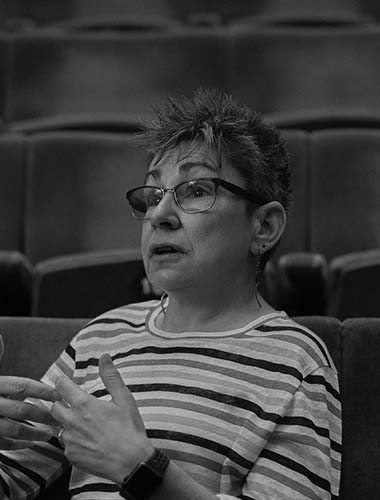Michèle Taylor
Director for Change, Facilitator, Coach, Trainer, Consultant
Entertainment

Michèle has been working for over 30 years to open up the mainstream cultural landscape to disabled and deaf people. Having trained as a teacher, and then worked in theatre as a performer, writer and director, Michèle set up her own business in 1991 to train, advise and support arts and heritage organisations in disability equality.
Michèle brings her experience as a disabled person to this work, as well as her intellectual rigour and her qualifications both as a psychotherapist and as a coach. She believes in the power of relationships to bring about change, and seeks to initiate and enable honest discussion around the barriers that disabled and deaf people face in the cultural industries, and the often ill-founded fears that mainstream organisations have about making change. Her aim is to demystify equality for disabled people and to normalise it as core good practice.
Since 2015, Michèle has been Director for Change at Ramps on the Moon, the Arts Council funded consortium of mainstream theatres facilitating a sea change to enable disabled and deaf people to take their place in the industry. Ramps on the Moon partners believe that disability equality is necessary to enrich their cultural offer, making it even more innovative, vibrant and exciting.
Michèle sits on the board of UK Theatre and has worked in the UK and beyond advocating for equality. She has worked with a large number of organisations including The Royal Opera House, Wellcome Collection, The British Museum, The Royal Shakespeare Company, Cultural Heritage without Borders and University of the Arts, London.
I don’t believe in access, if access means being grateful for the opportunity to enter institutions and systems that remain essentially ableist; I want to be more disruptive than that. I am committed to the social model of disability as our most powerful tool to enable conversation and change which will remove the barriers preventing disabled and deaf people from taking our rightful place at the heart of (and at the top of) our cultural organisations.”
